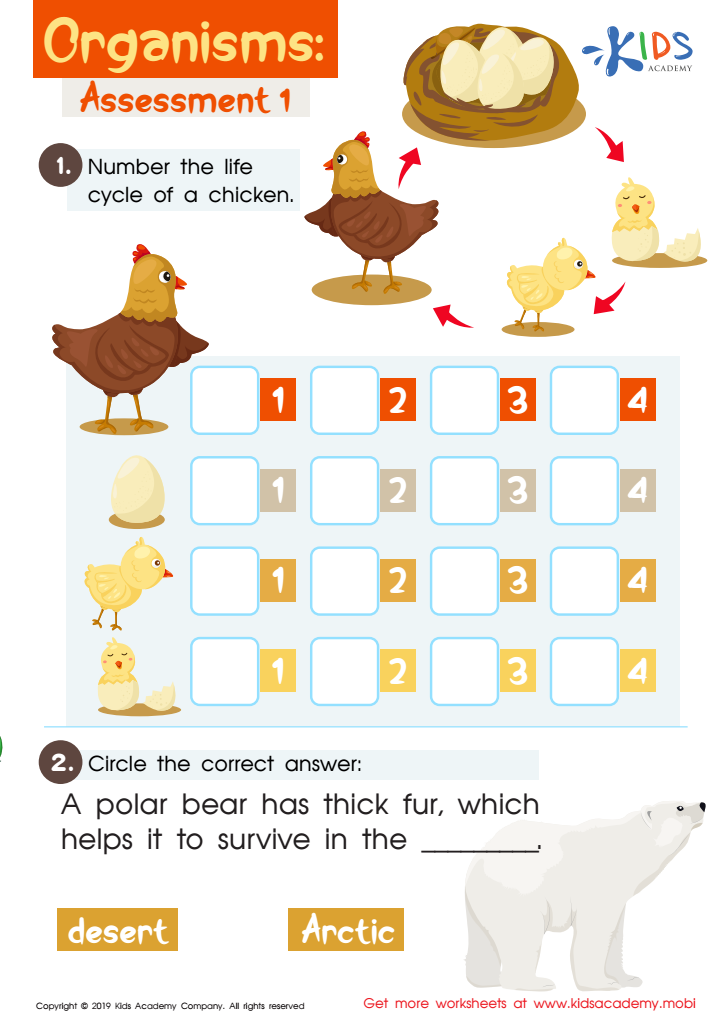Learning life cycles Worksheets for Kids
1 filtered results
-
From - To


Organisms: Assessment 1 Worksheet
Question/Answer
How to test a Grade 3 student’s Learning life cycles skills?
To test a Grade 3 student's learning life cycles skills, design assessments based on observing and explaining various life cycles (e.g., plants, animals, insects). Use activities such as matching games, labeling diagrams, and sequencing events. Incorporate hands-on experiments, like growing a plant from seeds, to allow students to observe life cycle stages and reinforce learning through practical experience.
How does the mastery of the Learning life cycles skill affect a student's performance at an early age?
Mastery of the Learning Life Cycles skill at an early age significantly improves a student's performance by enhancing their ability to efficiently absorb, retain, and apply knowledge across various subjects. This skill fosters adaptive learning techniques, effective study habits, and a deeper understanding of content, consequently boosting academic success, self-confidence, and a lifelong passion for learning.
What are some effective activities to train students’ Learning life cycles skill when teaching them about Our Planet and Environment?
Effective activities to train students’ Learning Life Cycles skill in environmental education include hands-on experiments (like growing plants to observe life cycles), interactive games focused on recycling and conservation, field trips to nature reserves or botanical gardens, and project-based learning that encourages students to research and present on local wildlife or environmental issues, fostering a deep, personal connection to the topic.#$%
 Assign to the classroom
Assign to the classroom











